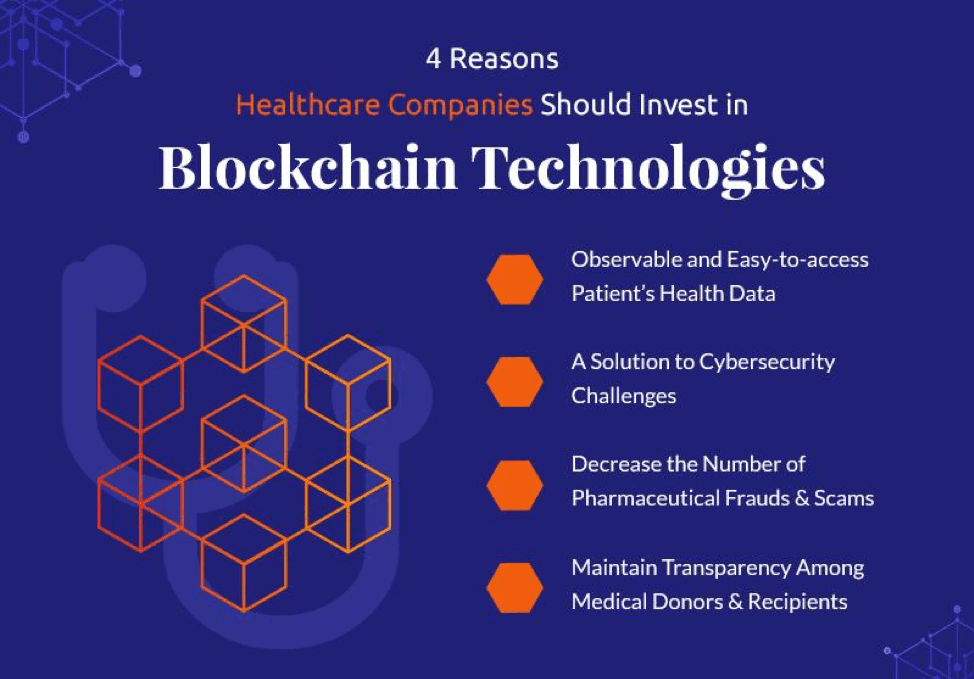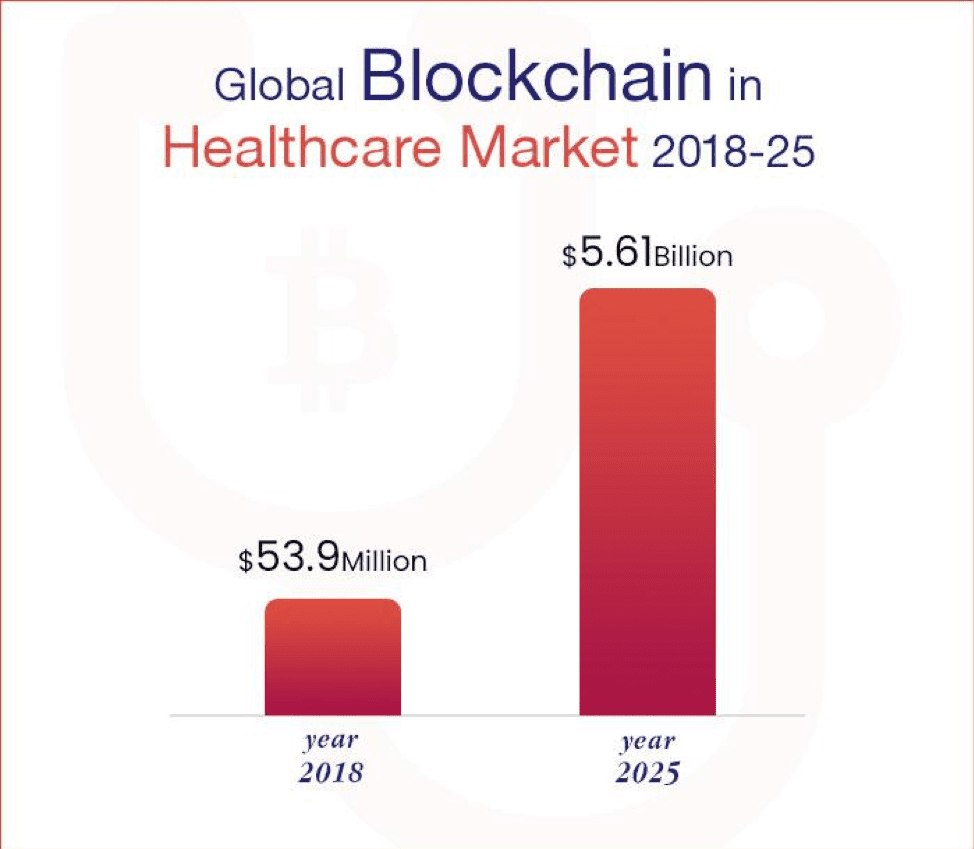Blockchain technology is a decentralized and distributed ledger system, where different transactions are permanently recorded
Across the world, many people relate the word “blockchain” with cryptocurrencies, such as Bitcoin. However, gradually, this technology is being explored in different supply chains, including the healthcare industry.
In simple language, blockchain technology is a decentralized and distributed ledger system, where different transactions are permanently recorded. According to Deloitte, blockchain is a shared and unchallengeable record of peer-to-peer transaction blocks that are stored in a digital ledger.

As there is no central authority in the system, all the records and transactions are being stored and shared across all network participants. In addition to this, Blockchain uses the data structure in order to ease the way we make transactions.
Apart from the healthcare industry, blockchain technology helps many other industries, including e-commerce, education and manufacturing, allowing companies to keep a permanent record of online exchanges and transactions in a more secure way.
When it comes to blockchain in the healthcare industry, one report from BIS Research estimates that the global blockchain in the healthcare market is estimated to reach $5.61 billion by 2025, observing a double-digital growth during the forecast period of 2018-2025.

Being a healthcare company, it is high time to invest in the blockchain technology and make the most of the many benefits it offers. Here are four genuine reasons why your healthcare companies should consider adopting blockchain technology:
1. Observable and easy-to-access patient health data
The main reason healthcare companies should invest in the blockchain technology is the fact that it offers easy access to health data and patient records. The healthcare centres can keep the patient’s data and records stored in the blockchain-based system, ensuring they are secure and permanent.
To access the data and records, patients give permission to healthcare service providers, allowing doctors to package new records into blocks, creating a permanent history of that patient. In fact, healthcare businesses get seamless access to real-time patient’s health data and reduce the burden of data settlement.
Moreover, it resolves many healthcare challenges like health data security and interoperability because the data and records that are stored in the blockchain-based system can’t be breached.
2. A solution to cybersecurity challenges
As we know, healthcare companies have to follow incredibly strict compliance policies, rules and regulations to ensure the security of patients’ data and the privacy of all records. With the number of cybersecurity threats and pressure, there is a new concern for healthcare companies to implement emerging digital workflows.
As per the 2017 IBM Security and the Ponemon Institute study, the data breach cost for healthcare companies and organizations has increased, costing $380 per record. So, healthcare centres and companies need to look at implementing a secure and trusted IT ecosystem to manage healthcare data.
Let’s take an example of the Food and Drug Administration (FDA). The United States FDA reported discoveries of cybersecurity susceptibilities in St. Jude Medical heart devices. With the increasing number of connected health devices in use, the potential for hacking any medical device is a big problem that needs to be resolved by medical device original equipment manufacturers (OEMs).
So, healthcare companies can invest in blockchain-based systems to make all the records of the digital events safe and impossible to hack. These systems operate on distributed network consensus with built-in cryptography techniques, so there is an extra layer of trust, reducing the number of cybersecurity threats for medical devices.
3. Decrease the number of pharmaceutical frauds and scams
Most healthcare professionals and companies are facing problems related to tracing the journey medications take, with issues making it difficult to show the route from the manufacturers to the patients. The challenge comes with costs, adding billions of dollars to processes and can pose considerable risks to patients.
But individuals are able to regulate the progression of single doses with blockchain-associated medication-tracing methods. With this transparency, the safety of patients increases.
In fact, implementing blockchain can also help pharma companies to track the movement of the drugs, mainly materials, from manufacturers to the last point in the supply chain. There will be a complete record of the transport of such drugs, leaving far less chance for them to be stolen at points of transfer or tampered with.
4. Maintain transparency among medical donors and recipients
Within the healthcare industry, research has found that $455 billion that gets lost due to fake practices. According to Reetuparna Dutta, partner at Hodgson Russ, a healthcare fraud and whistleblowing law firm, these frauds are often not committed by criminals but by those within the industry simply acting irresponsibly.
In short, they don’t take the requirements imposed on them seriously in terms of appropriate billing and allowing bills to be submitted without taking steps to check and ensure their accuracy. Blockchain can help make billing easier and ensure that all required records meet with requirements.
On top of this, some statistics show that 30% of resources donated to help developing nations in need never reach their targets due to corruption. So, donors can make use of a blockchain-based system to find how healthcare organizations are making use of their contributions. It gives an additional level of transparency that will work well for bodily donations like blood.
Let’s take one example of SmartBag company, which makes use of blockchain technology in order to find the detail about blood donations before transfusions. Through unsafe transfusions, 15% of new HIV infections are caused in Sub-Saharan Africa, as per the estimations. The technology can help reduce these instances and ensure that donations are safe and that they go to the right places.
In conclusion
Blockchain technology gives an advanced convergence potential across different digital initiatives. This technology can help healthcare companies and startups to resolve many pressing challenges like data interoperability, insurance notarization, cybersecurity, billing fraud issues and more. So, it is significant for companies to invest in blockchain technology to get complete data security and quick access to patient’s records.
